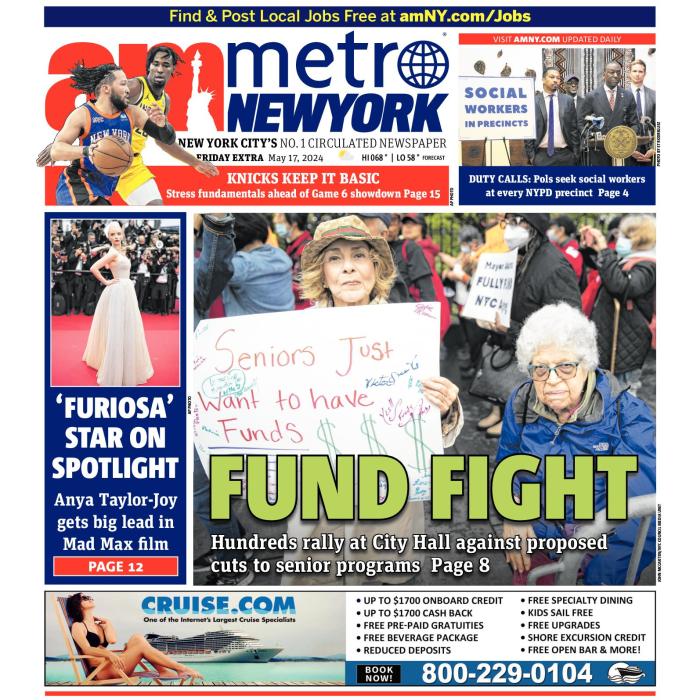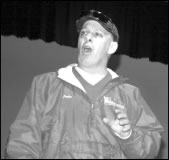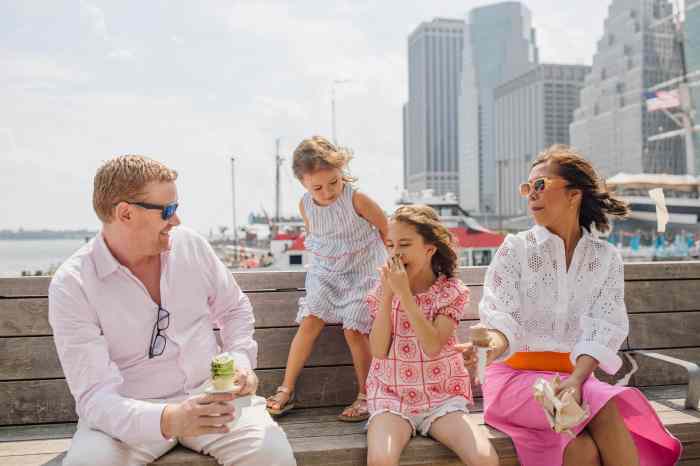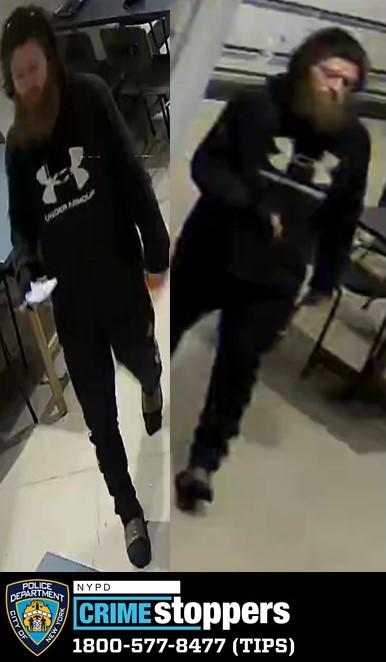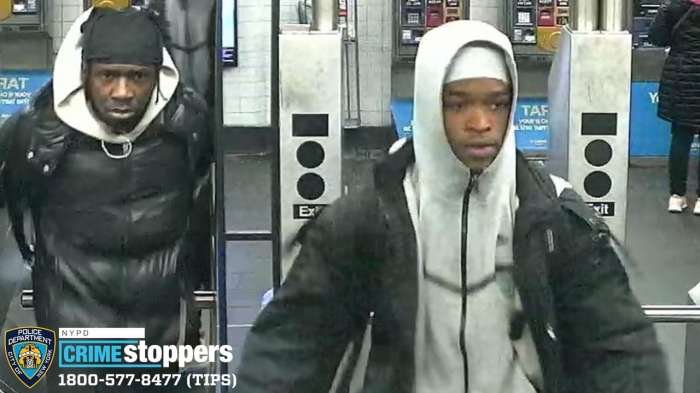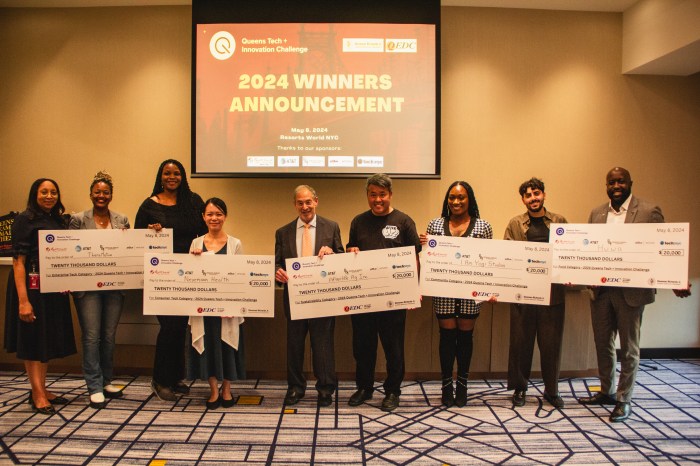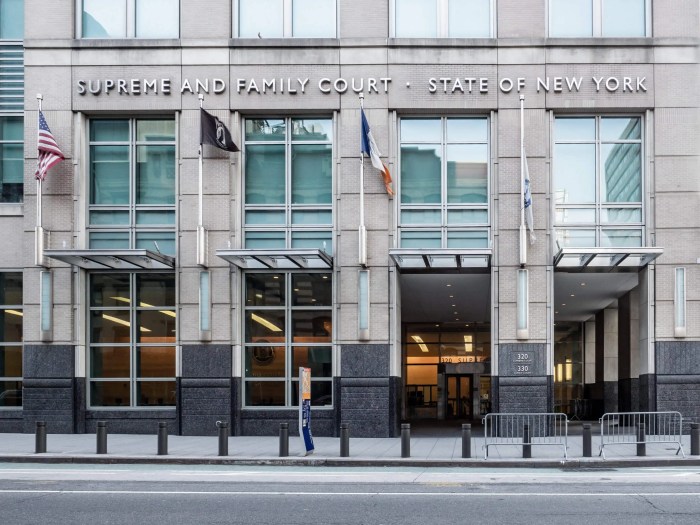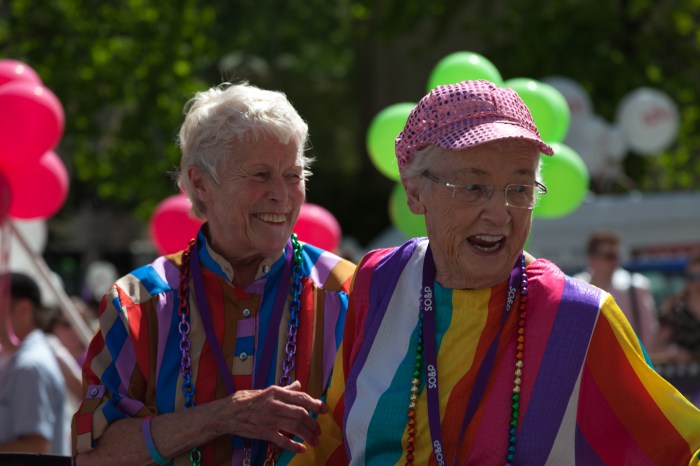BY Aline Reynolds
Denise Villamia, 51, takes more than 10 medications daily for a range of illnesses she claims to have developed from volunteering at Ground Zero in the weeks following 9/11.
She was forced to quit her job as a public school social worker last October due to debilitating symptoms of gastro-intestinal reflux and sleep apnea. “I was falling apart because of everything I had to deal with,” she said, showing skin discoloration on her palms, a symptom of her auto-immune disorder.
Villamia, who has never sought compensation for her ailments, is in dire need of financial support from the Victim Compensation Fund to lessen her burden of costly medical expenses.
Villamia was one of more than 250 first responders and Downtown residents injured on 9/11 that gathered at Queens College on March 20 to meet attorneys offering to represent them in reimbursement cases.
“These men up here in their suits aren’t here to look pretty, they’re here to fight for you,” said John Feal, founder and president of the FealGood Foundation, an advocacy group for 9/11 victims and the organizer of the forum.
“This is the rest of our lives. This is it,” said Feal, addressing an emotionally raw audience. “It’s up to everyone here to advocate to keep the V.C.F. up and running.”
The fund, valued at $2.8 billion, was re-opened under the James Zadroga 9/11 Health and Compensation Act, which passed Congress last December and was signed by President Obama a few days later. It is meant to remunerate those who have suffered economic losses due to physical injuries incurred on or following 9/11.
Eight attorneys from New York-based law firms introduced themselves and offered advice to those seeking compensation for their respiratory and other illnesses that have pushed many of them into unemployment.
“We’re very committed to repaying and honoring the service that you gave us, to our nation, and get every possible condition included in this so we can protect you and your families,” said Jim Lundy, representing Advocates for Justice.
“You certainly have a tough decision here in determining who is going to represent you,” chimed in Bill Groner, from Worby, Groner, Edelman & Napoli Bern, the firm that represented more than 9,500 first responders in 9/11-related law suits against New York City and the Port Authority of New York and New Jersey.
The lawyers stressed that, in defending the victims, they’ll have to prove the association of their illnesses or wounds with 9/11. Under the V.C.F., the attorneys are entitled to receive a fee of up to 10 percent if their clients are awarded money.
“Just because you have an injury, it doesn’t mean you’re going to get compensation in the V.C.F.,” said Napoli. “You have to show injury that was related to exposure with Ground Zero.”
FealGood Foundation Attorney Sean Riordan noted that it’s still uncertain whether victims such as Villamia who were granted money in the first round of the V.C.F. are eligible for remuneration in the second round.
These and other substantive decisions concerning the funds’ implementation, including which illnesses warrant compensation, will be determined by the special master, who Feal said would be selected by May.
“That person is the single most important individual in setting policy and guidelines, including issues such as how cancer is treated in terms of the Zadroga legislation,” said personal injury lawyer John Dearie.
The special master, Groner chimed in, also has the authority to relax the standard of proof victims are expected to bring to the table. “We want him to be as lax as he can be… people who were healthy before are no longer healthy and have to be taken very seriously,” said Groner.
Dearie noted that illnesses commonly found within the general population can be difficult to attribute to the events of 9/11. Contrary to the original V.C.F., which primarily awarded wrongful death cases, this latest round of V.C.F. funding, he said, will presumably cover a larger range of injuries that can be compensated.
Feal said he is determined to get cancers, in particular, added to the list of illnesses. He has attended some 50 funerals in the last few years, noticing that nearly all of the deaths were cancer-related.
“[The policymakers] are on notice – mark my words,” Feal said vehemently. “We got the media, and we can rally in a heartbeat. I’m confident this is a fight we’re going to win.”
Another ailment advocates are fighting to be included in the V.C.F. is post-traumatic stress disorder, which is only reimbursable under the current regulations when accompanied by a physical injury.
Attorney Noah Kushlefsky said he would conjure up medical evidence supporting the claim that P.T.S.D. is a type of physical impediment. “By using a handful of studies to show physical injuries to the brain, we’ll argue that people are rendered disabled by P.T.S.D. and have a medical injury and are entitled to compensation,” he said.
And, while it is not a requirement, the lawyers strongly recommended that claimants become enrolled in one of the World Trade Center Centers of Excellence health clinics, if they have not done so already.
“There’s a very good flow of information between the health care side and the victim’s compensation side,” said Kushlefsky, since the special master typically consults the clinics for advice and assistance before deciding on a case.
Enrollment in one of the clinics is also strongly advised because the physicians, Lundy and Groner noted, are more prone to identify causal relationships between patients’ illnesses and their exposures from 9/11.
“At the Centers of Excellence, that is part of what those physicians are doing – taking a very detailed occupational and exposure history,” said Lundy.
The attorneys pointed to the inherent flaw in placing funding and distribution limitations on the money. Only $800 million of the fund, which is now capped at $2.8 billion, will be released to victims in the first five years, and the remaining $2 billion will be released in 2016 (the sixth year). “We don’t want the [U.S. Department of Justice] to say we have to preserve funds,” said Riordan. “We want them to pay you what your claim is worth, regardless of your overall cap.”
Kushlefsky said the lawyers would collectively fight for the release of the payments in full in certain circumstances. “Some people can’t wait five years, are very sick and need the money now,” he said. “Our goal is so it’s fair to everyone, and not to look at this as a budget but as initial funding.”
The lawyers also vowed they would continue to work with the Department of Justice to expand the total amount allocated to the fund.
